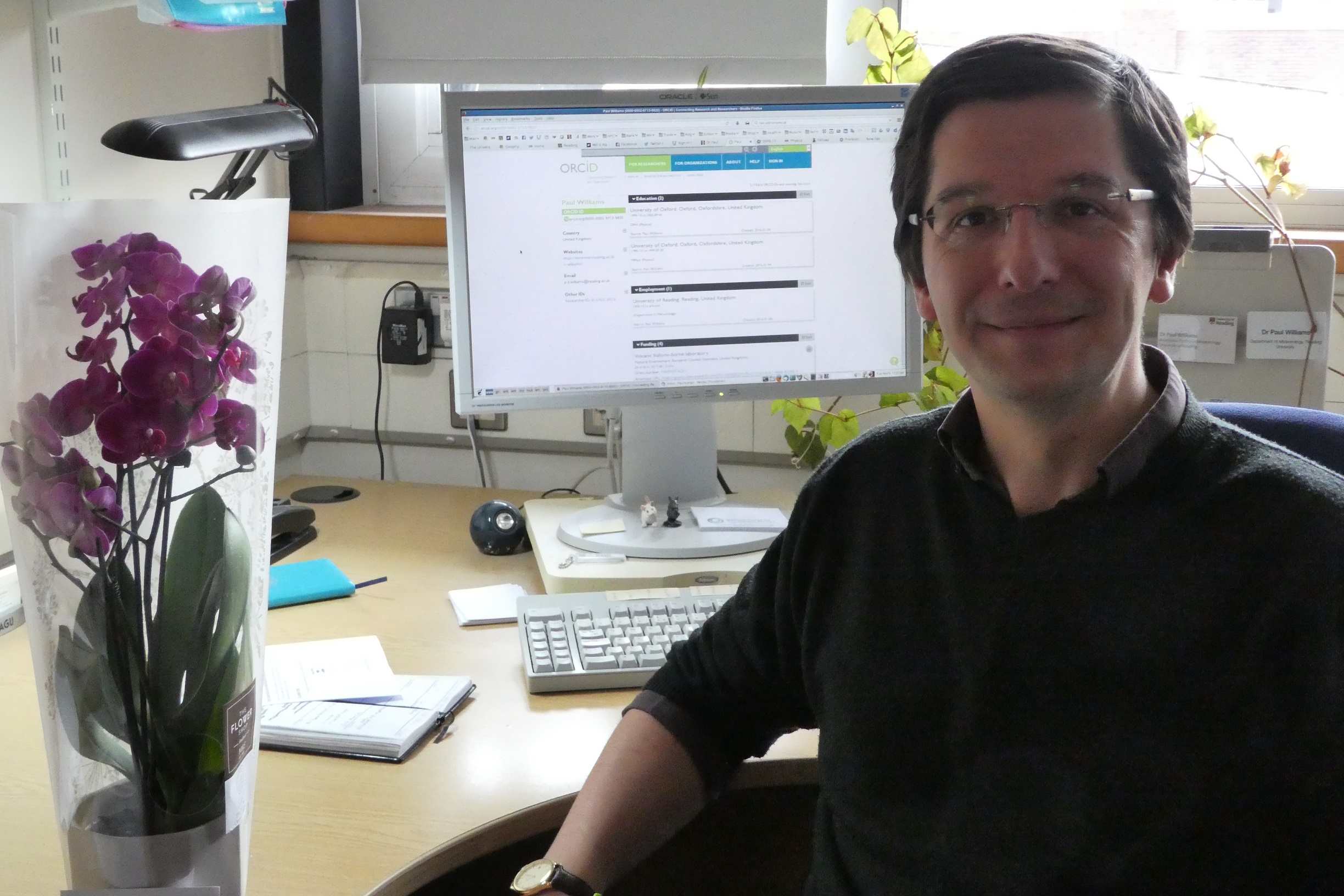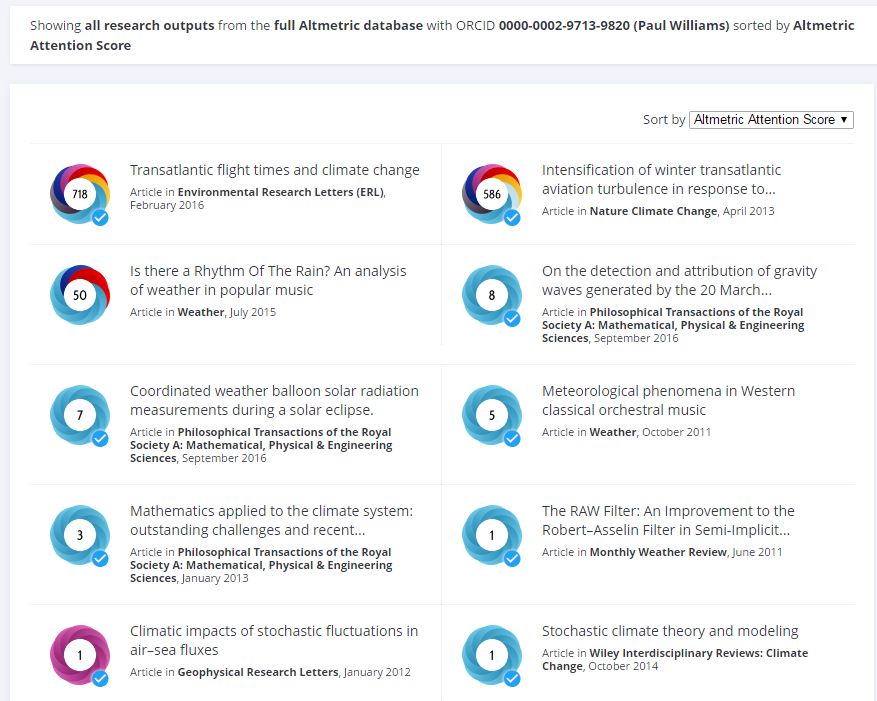As part of our Open Access week activities at University of Reading, we held an ‘Orchid for an ORCiD’ competition for our researchers, research students and research support staff. We had 59 entries and the lucky winner of our orchid and a £20 book token was Dr Paul Williams of the Department of Meteorology.
When I went to his office to present the prizes, I talked to him about why he signed up for an ORCID Identifier and how he uses it in his research activities.

Paul Williams with his orchid prize and his ORCID iD page open on his computer
How long have you had your ORCID iD?
I signed up for one in December 2015.
Why did you decide to register for an ORCID iD?
There were two factors which influenced my decision to sign up. A number of major publishers, including the Royal Society and the American Geophysical Union, announced that it was going to be obligatory to have an ORCID iD in order to publish in their journals from 2016. I’m an editor for an AGU journal, Geophysical Research Letters, so I thought I better register for one if I expected all the authors to do the same. Another important reason was to stop my publications being mixed up with papers from other authors with a similar or identical name – my name is not unusual and there’s even another UK Paul Williams publishing in the same field.

If you search the ORCID registry, you’ll find a lot of researchers called Paul Williams!
How easy was it to add information to your ORCID record?
It was surprisingly easy to populate my ORCID record. The education and employment sections required a small amount of manual input, but the funding and works sections were easy to import from other sources.
How many of your funding awards did you manage to import via the ‘search and link’ feature?
The search feature is very good and all my major grants from the Royal Society and the Natural Environment Research Council were easy to import. The UberResearch wizard was a quick way to pull in my research awards.
Have you entered and used your ORCID ID on any other websites – for example, a publisher’s manuscript submission system, when applying for funding or Researchfish?
I now input my ORCID iD when submitting manuscripts for publication, if the publisher’s manuscript submission system has this enabled. I have also linked my ORCID iD with my ResearcherID account, so that information on new publications only has to be entered once.
Do you have any plans to add to your ORCID record, for example, linking to your Scopus ID, adding keywords etc.
I have just added some keywords to my ORCID record today! I also plan to link to my Scopus Author ID when I get the chance.
Did you know that you can use your ORCID iD to track attention to your outputs using Altmetric?
I really enjoyed using my ORCID iD to track attention to my outputs using Altmetric, now that the University has a subscription. It was easy to login (no password needed as you can continue as a guest!) and it was straightforward to search the full database using my ORCID iD. As I am an active Twitter user (@DrPaulDWilliams), I will be using this capability in future to find, reply to, retweet, and favourite tweets directly from within Altmetric.

You can search the Altmetric database using your ORCID iD to track attention to your research outputs
What’s your ORCID iD?
My ORCID iD is 0000-0002-9713-9820.
If you’re inspired to sign up for an ORCID iD by Paul’s story, it only takes a few minutes. Your ORCID iD belongs to you and not to your institution. Sign up here or find out more from our handy LibGuide.

 RSS - Posts
RSS - Posts